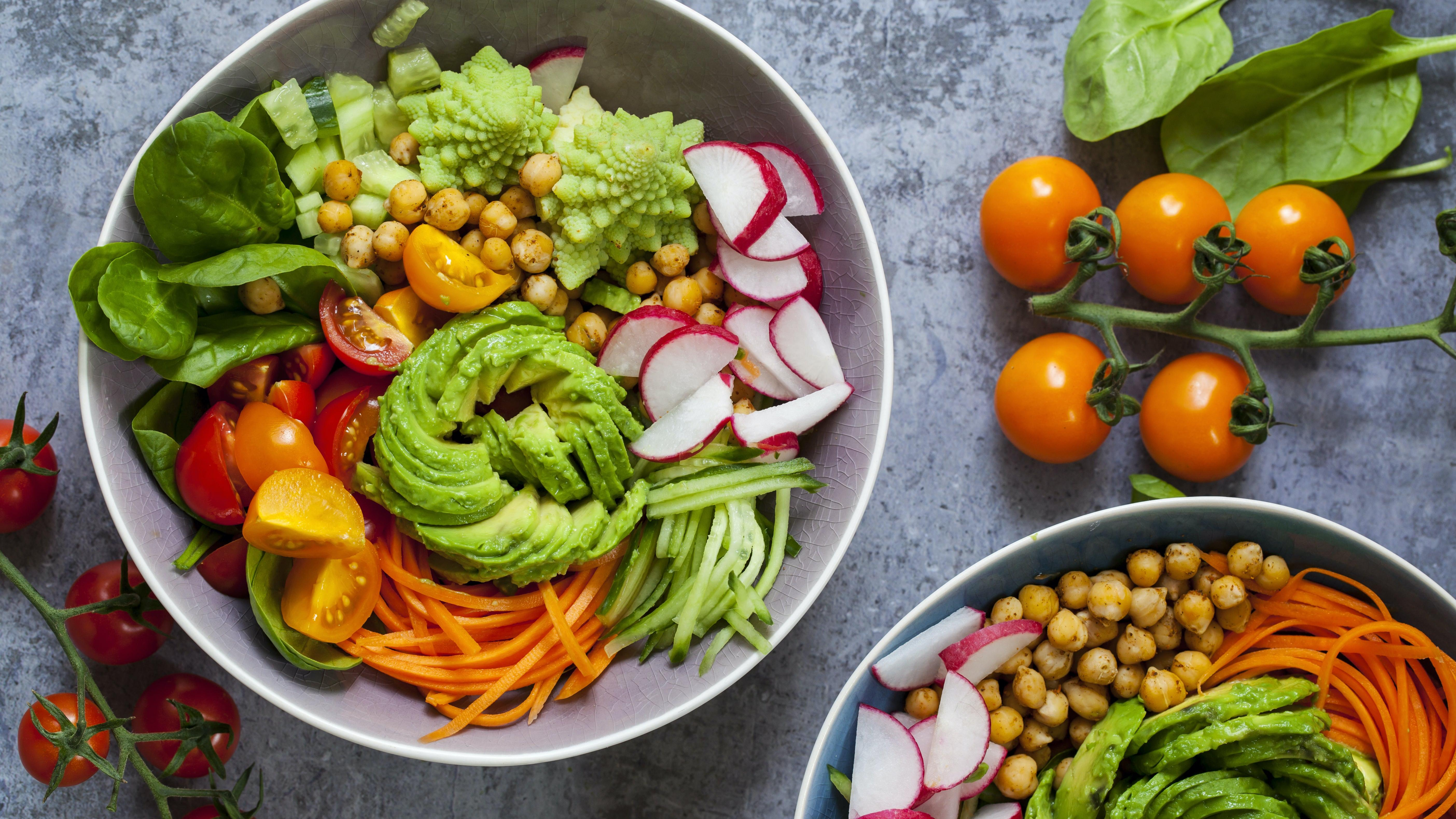What Do Vegans Think Of The 'Angry Vegan' Stereotype?
Are vegans really all that angry? And why does everyone fixate on their choices?
When I made pizza for a living, we had a large volume of customers who came in specifically for our vegan pies. It got to the point where I designed many of my pizza specials to be easily convertible to a vegan version, with no sacrifices in the flavor department. Everyone left happy, and because of that, I never thought there was much truth to the stereotype of the "angry vegan," as popular media likes to depict them. But I've still always wondered: How common is it for vegans to openly despise the omnivores (and carnivores) around them?
I consulted some vegan friends of mine, asking how they felt about that image, and whether or not their personal beliefs reflected the stereotype.
Vegans have “valid reasons to be upset”
Joe Hehl is the foodservice sales manager at Upton's Naturals, a company that manufactures vegan meat alternatives here in Chicago. (Upton's collaborated with Buona on the development of the plant-based Italian Beefless sandwich.) He also has an excellent vegan blog, Dragged Through the Garden, which features a range of delicious recipes. I asked Hehl if he considered himself an angry vegan.
"I'm not an angry vegan," he said. "I'm angry and vegan, but in a mutually exclusive kinda way. Like, 'angry I didn't get Green Day tickets and my Check Engine light just went on' angry. And I also don't eat anything that poops."
Fair enough. I've never considered pooping as a characteristic of the meat we eat, but I guess I'll never again forget it, now that he put it that way. Though Hehl doesn't consider himself an angry vegan, I asked if he thought there was any truth to the stereotype more generally.
"Yes," he replied. "Just listen to Earth Crisis [a hardcore punk band], those are some angry vegans!" (Earth Crisis is indeed angry, as I've now discovered.)
Ultimately, though, Hehl thinks this conception of non-meat-eaters is a bit outdated by this point.
"In broad strokes, I think that the popularity of plant-based cuisine may have diluted the 'angry vegan' trope on a grander scale," he says, "but, you know, factory farming and Big Dairy are both valid reasons to be upset."
America has “more angry omnivores” than vegans
Kelly Bone, a food writer based in San Diego, admits that she might be a little angry. But the anger is directed at the right targets.
"At the heart of embracing most anti-establishment movements is some level of anger," Bone said. "In my case, it's the treatment of animals. But, colloquially, I think you're asking if I'm hostile towards omnivores just because they eat meat. No, I'm not."
"If you take any sizable group of people, you can guarantee there will be some angry ones," Bone said of the vegan community at large. "So yes, there is some truth [to it]. But, statistically, there are 30 times more angry omnivores in America." Having seen the apoplectic reactions from hundreds of Facebook users when Cracker Barrel posted about its new Impossible breakfast sausage, I'm inclined to agree.
The biggest misconceptions people have about vegans
The sheer amount of trash-talking people love to direct at vegans and vegan food—don't get me started on tired standup routines—seems endless. In what ways are those who choose to life a plant-based life misunderstood by their peers?
"People have a misconception that vegans want to hear all about how they only eat ethically sourced meat or the bodies of baby deer that their dad shoots, dismembers, and keeps in a basement freezer," said Bone. This might be a meat-eater's self-conscious effort to prove that they're one of the "good" carnivores, one who doesn't participate in the factory farming industry—but whatever the case, it's not a welcome topic.
"I didn't ask, and definitely do not want to hear, about what meat you eat," Bone said. "It's literally the last thing I want to know about someone."
For his part, Hehl wants people to stop believing that only animal products can make a dish taste great.
"I think that the biggest misconception is that vegan food sucks by default," he said. "Admittedly some of it does suck, but sucky food isn't exclusive to veganism!" (It sure isn't.)
Both Hehl and Bone consider their vegan choices to be a form of protest, a demonstration against systems they don't wish to participate in. Bone's framing of veganism as "anti-establishment" is certainly true of those who eat no meat in the top beef-producing nation in the world; Hehl, meanwhile, said he became a vegan as a sort of rejection of the way he was raised on animal products.
"I grew up 'meat and potatoes,' so maybe it was originally an act of protest against my parents... at the age of 23," Hehl said. "But then came a little bit of research, and after seeing how the sausage actually gets made, if you will, my stance has since been effortlessly firm."
So it's true, to an extent. The so-called angry vegan exists, but only insofar as there are angry people. The level of passion with which a vegan professes their lifestyle, and the manner in which they express it, really just depends on the person and their individual motivations. Rejecting animal products in one's diet a sort of rebellion by its very nature, so it certainly makes sense that strong emotions inform that choice. But if there's anger, it's more likely than not one that motivates rather than destroys, propelling one to try to make a difference in their everyday life.
